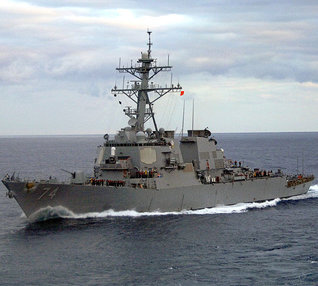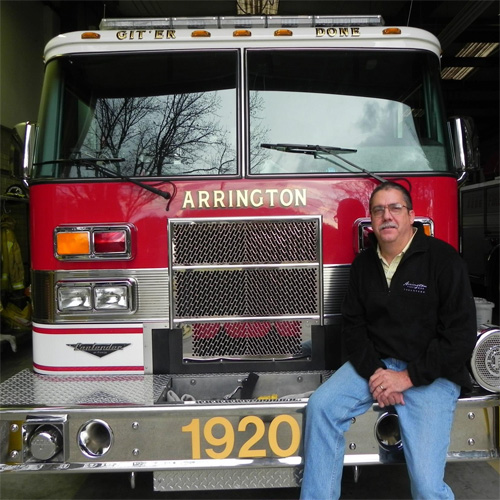
GoNavy
New York, NY
Male, 28
I went to Yale NROTC and received a commission as a Navy SWO (ship officer). I didn't renew my service after the required years. I wanted to move on to make a civilian life for myself but not a day goes by that I don't miss the Navy.
My first sea assignment was a DDG (destroyer) on which I was a division officer overseeing more than 20 sailors. Then for shore duty I was an instructor at SWOS. For my final year I returned to a new ship as a division officer.
Hey there Darryn! I had two requirements for service:
1) 8 years total service.
2) No less than 5 years of active duty.
This means that when I finished active duty, I needed to be in the Reserves for 3 years. The basic difference is Active Duty is full time, while Reserves is part time (at least 1 weekend per month, one 2-week period per year.)
As a Surface Warfare Officer, I was respondsible for part of the operations onboard a ship. Therefore, I never fought in ground combat. I was, however, on a ship that did serve in hostile areas. "Active Duty" refers to anyone who's in the Navy full-time. It has nothing to do with how much they fight. So in a way I was kind of in a warzone, but on a ship, miles away from the brave soldiers and Marines on the ground. That isn't to say that the sailors on my ship weren't brave. A ship is a very dangerous environment if you don't know what you're doing. Accidents do happen.
Well I'm assuming that you're referring to troops who've seen combat. I have not. They probably had some bad memories of combat. That could mean friends being wounded in combat, even killed, or maybe just the sound of enemy gunfire made them anxious. Sorry I don't have a more detailed answer. Again, I was an officer on a ship.
Hey Ahsad,
It's definitely not off-limits. I've seen people argue about politics more than a few times. But for the most part, it isn't much of an issue as far as friendships go.
The majority of officers in the Navy are Republicans. I identify as a Democrat. (I'm also Jewish which makes me part of a very small minority in the military.)
Enlisted servicemembers on the other hand are mixed between the parties. They're much more liberal than officers on average, but overall I'd say the military is conservative.
As a democrat, I don't want to feel that a Democratic president is any worse for the military than a Republican. Many of my friends had this feeling. In my opinion, Obama may not be perfect, but some of my fellow officers had some pretty ignorant negative beliefs about him. I served during both the Bush and Obama administrations. I didn't feel a major difference. Others might have imagined one.
I hope this answered your question.
Not very realistic. When the draft was used in the past, the peacetime military before the draft was much smaller than during the war. Today, the US has a strong military during peace AND war.
Also, with the technology we have today, the number of troops is not as important as the quality of the equiptment and of course the training of each soldier.
So a draft would probably not be useful anymore. The military is big enough. More troops wouldn't do much good.
The only scenario where I could see a draft would be an all out WW3. I mean if there's fighting all over then I guess we'd need more people, but I still doubt it.
School Teacher
 Are teachers underpaid?
Are teachers underpaid?
Firefighter
 What's the worst you've been burned in a fire?
What's the worst you've been burned in a fire?
Professional Reseller
 What kind of mark-ups can you fetch on the clothing you resell from thrift stores?
What kind of mark-ups can you fetch on the clothing you resell from thrift stores?
ROTC is always school before military service. When you graduate, you become an officer (leader) in the military. There are also programs for enlisted (non-officer) men and women to go to college after their service, but that's another story.
One important thing to know: The majority of officers in the military have at least a 4-year college degree. Most enlisted do not. The three major ways to become an officer are ROTC (civilian school+military training), service academy (school that is 100% military), or OCS (school first then military training later.) These all involved having a degree.
Whether or not you have to pay anything depends. Some have full scholarships while others do not.
Haha this guy^^^
I've never heard of that conspiracy. Maybe you have a special sense so only you know the truth. Lol. If you want to share your ignorant comments then find another place. Don't worry there are plenty other conservative conspiracy theorists out there. They aren't exactly hard to find online.
If you suddenly decide to ask an intelligent question about the Navy, please do. And I'd be glad to answer it/them. (Maybe use a different alias next time. Y'know, one that doesn't makes you look like an a**.
Glad you asked.
Actually, the majority of jobs in the military really have nothing to do with fighting. Especially in the Navy. Check out any of the websites for more info, but I'd say that if you didn't want to go into combat, there are still so many other things you can do in the military.
-OR-
 Login with Facebook
Login with Facebook (max 20 characters - letters, numbers, and underscores only. Note that your username is private, and you have the option to choose an alias when asking questions or hosting a Q&A.)
(A valid e-mail address is required. Your e-mail will not be shared with anyone.)
(min 5 characters)
By checking this box, you acknowledge that you have read and agree to Jobstr.com’s Terms and Privacy Policy.
-OR-
 Register with Facebook
Register with Facebook(Don't worry: you'll be able to choose an alias when asking questions or hosting a Q&A.)